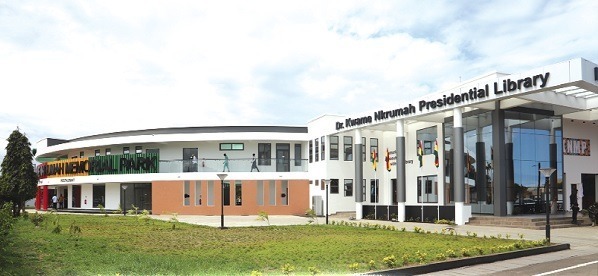The Kwame Nkrumah Memorial Park now generates GH¢1.1 million a month following its rehabilitation.
Prior to the rehabilitation, the park was generating GH¢3,000 on the average a month.
Aside from the increase in revenue, the workforce at the park has since increased by 50 workers.
The Minister of Tourism and Creative Arts, Dr Ibrahim Awal, said this at the inaugural Ghana Mutual Prosperity Dialogues in Accra yesterday.
Beyond these achievements, the minister said the national museum, which previously generated GH¢25,000 a month, now raked in GH¢350,000 after its rehabilitation, while 15 more workers had been recruited to work at the facility.
He, therefore, asked the private sector to take advantage of the opportunities that existed in the area of tourism in view of the enormous benefits it had for the country.
Objective
He said the objective of the government was to move tourism from its third position, in terms of contribution to the gross domestic product (GDP), to number one by 2025/2026.
Dr Awal indicated that the country was expecting 1.2 million international arrivals this year, as against almost one million last year.
“The sector is very viable and very rich and I want members of the private sector to avail their minds to the tourism and creative sector,” he said.
Moreover, he said there was the need to build two to four five-star hotels every year over the next decade since all the hotels were full now.
“We need to build 120,000 rooms over the next 15 years by hotels,” he said, and urged the private sector to take advantage of that.
He said between December 1 and 15 this year, the country would expect about 115,000 people from the United States alone.
Middle class
Apart from that, he said, there was the need for more restaurants as the number of people in the middle class was also growing.
The Minister of Information, Kojo Oppong Nkrumah, said one of the most important takeaways at the event was one of collaboration and partnership which was evident in the open arms with which the government’s side led the conversation.
That, he said, was because one side could not do it all alone and that there was the need for collaboration with other partners.
“This collaboration and partnership require us to listen some more and in particular to promote where we have a big stock of our businesses, that is in the small and medium enterprise arena,” he said.
Commitment
Mr Oppong Nkrumah said there was a clear commitment from the government in terms of action taken and that from the 2024 budget that was being prepared to be sent to Parliament, “you would find some of the views and thoughts that have been expressed here find reflection for action.”
Action, he said, was one of the things that would be looked forward to from the dialogues and that the government would look forward to having such continuous engagements.
“When we get back here the next time for these prosperity dialogues, it wouldn’t be just a dialogue on mutual prosperity but it would be dialogues that start with accounting for what we have achieved since the last time we gathered for a conversation like this,” he said.
He said there was a full sense of commitment from the government to put life behind the conversation at the event and that the 15-month growth strategy that was being drafted with the inputs of the private sector would form a key part of that.
In a welcome address, a Deputy Minister of Finance, Abena Osei-Asare, said the performance of the economy prior to the COVID-19 pandemic was a testament to the collective resolve of all to improve the country.
The Chief Executive Officer of the Association of Ghana Industries, Seth Akwaboah, said if the country focused on bankable projects there would be good returns on investments.
“Ghanaian businesses today are looking for viable partnerships that would result in investment in our productive sector in order to leverage African Continental Free Trade Area (AfCFTA) opportunities,” he said.
The one-day event was held on the theme: “Investment, Growth and Jobs Now”.
Present at the event were the heads of some of the various regulatory agencies in the country.
They included the Director General of the Ghana Standards Authority (GSA), Prof. Alex Dodoo; the Commissioner General of the Ghana Revenue Authority, Ammishaddai Owusu-Amoah, and the Director General of the Securities and Exchange Commission (SEC), Rev. Ogbarmey Tetteh.





































